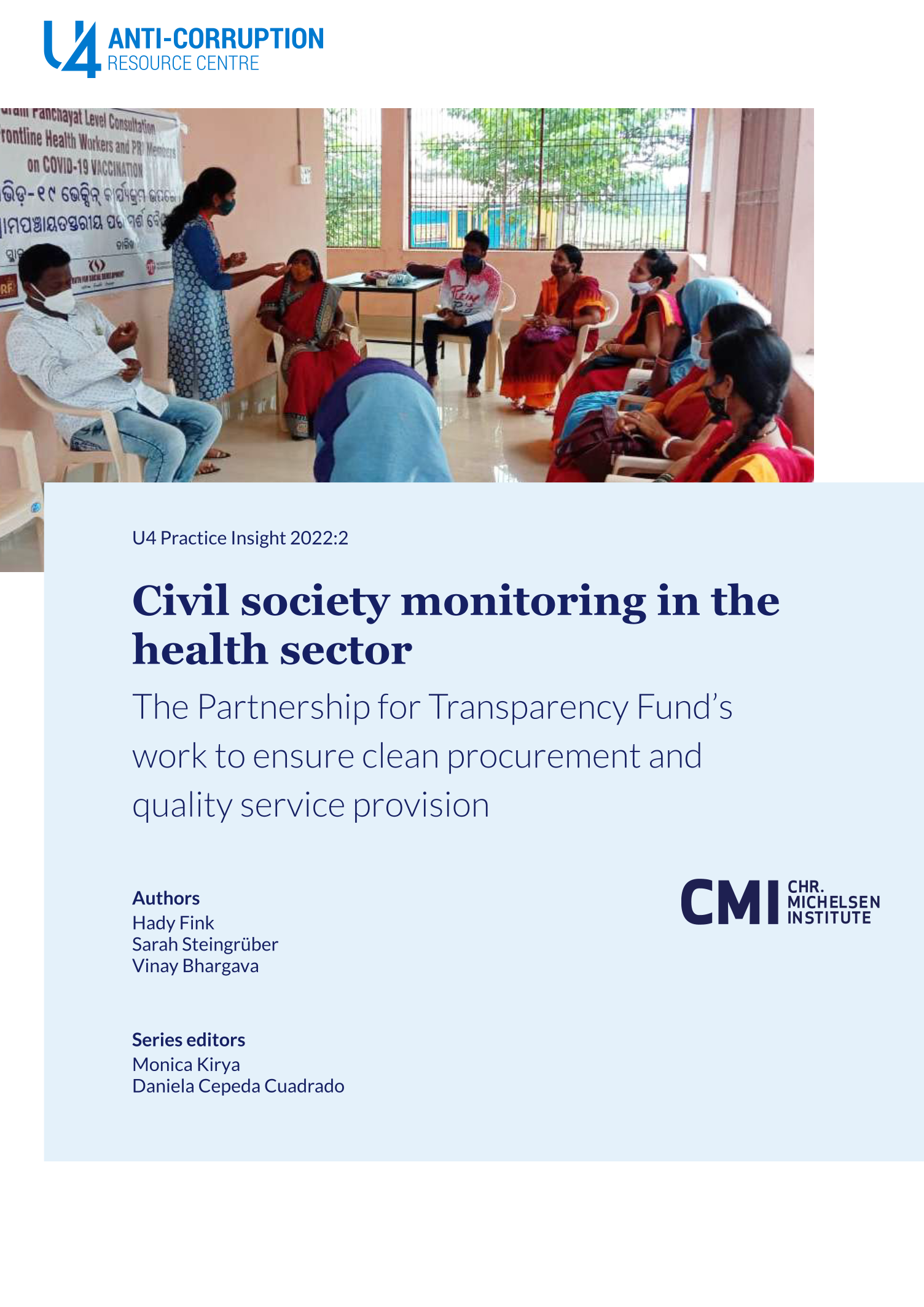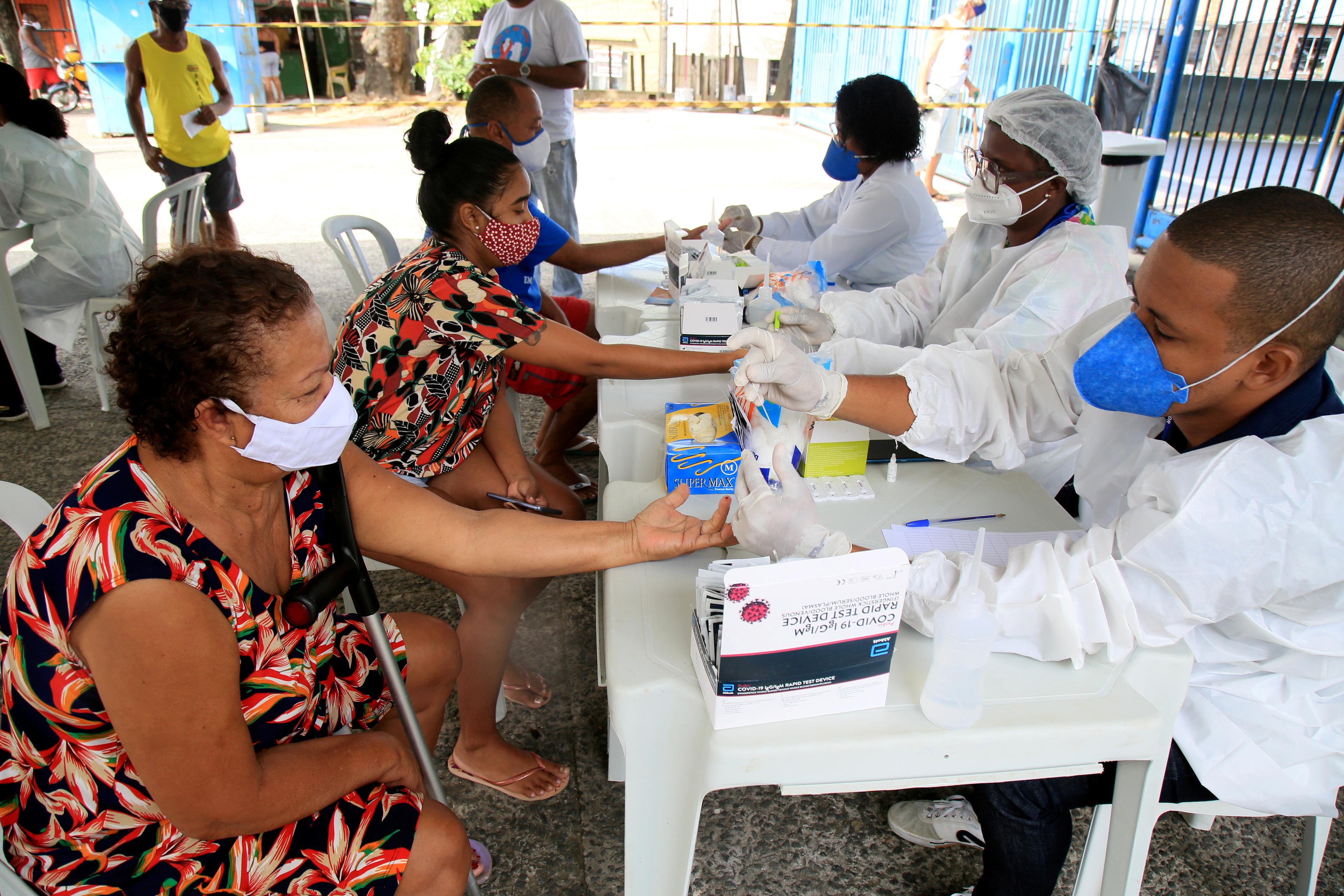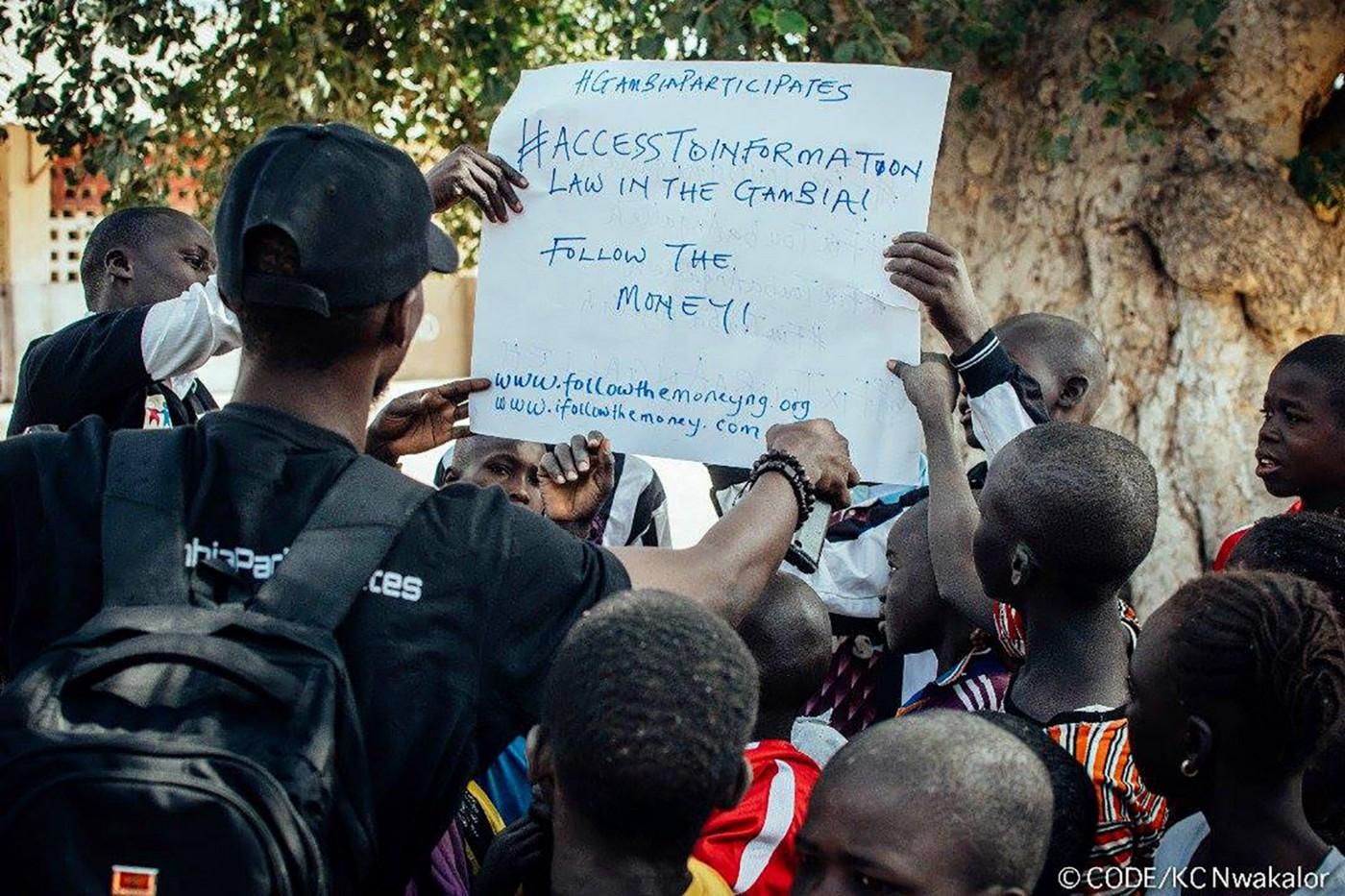Main points
- Health sector governance and ensuring cost-efficient and quality health services have become even more important as a result of the Covid-19 pandemic. Citizens and civil society organisations (CSOs) have a vital role to play in monitoring projects, and confronting corruption in their communities.
- The Partnership for Transparency Fund (PTF) finds that the success of citizen-led approaches depends on choosing the right partner to implement the project, and fully engaging with communities and those in authority. The tools applied to the project must also be fit-for-context and complement activities and community-identified priorities.
- It is vital to select the right project partner – one who is suitably qualified, is committed, has the trust and support of the community, and has the appropriate influence. A network of long-term CSO partners is a key asset of PTF, and one considered to be underestimated by the donor community.
- Successful monitoring projects rely on community members to identify with the problem to be addressed and have a desire to change it. They must be willing, capable, and empowered to drive that change. Marginalised and vulnerable groups should be considered.
- With those in power affected by civil service monitoring, securing the buy-in of authorities at the start of a project is paramount. However, it is necessary to cultivate multiple champions and be constantly vigilant and flexible – any changes to or within those authorities are likely to impact the project cycle and ultimate success.
- To design and implement an effective project, apply a strategic, non-confrontational approach that has ambitious – but realistic – objectives and tools, and create a monitoring, evaluation, and learning (MEL) framework that can feasibly be applied.
- CSOs play a crucial role in supporting public health service delivery and improving results – as well as targeting corruption within the health sector by enhancing transparency and accountability through their monitoring efforts.



